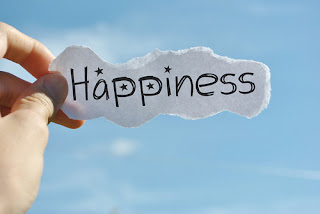Facebook is predicting the end of the written word (http://qz.com/706461/facebook-is-predicting-the-end-of-the-written-word/) on its platform and otherwise. Is it even possible?
A quick search of the history of writing shows us that the earliest form of writing with symbols came about around 6600 BC and the earliest script came around 3400 BC. Of course, some would be quick to point out that our ancestors had no Facebook or other social media platforms. But what they fail to realize is even in that day and age, people felt the need to communicate what was important by writing. Whether it be for the sake of posterity or merely expressing themselves, they chose to do so using the written word.
That tradition continues even today. Our most important documents are the letter of the law, legal contracts or binding deals. Whether it be the declaration of independence, the constitution or an agreement, none of these are left in pictorial format. They are represented in great detail in the written word. Why? Because the written word matters. The written word is powerful. In a world where everybody is expressing themselves using video or photography, it matters today more than ever.
It was Confucius who is known to have said, "Without knowing the force of words, it is impossible to know more." Referring back to Facebook, they believe that the written word will soon be lost due to the amount of video / pictures that people are using on their platform and Instagram. But they seem to have forgotten one important fact; these same people post their videos / photos, but any further communication on that happens in the written word. People in a certain sense are eliciting responses by their media in the written word. I would even go so far as to characterize the 'like' and other reaction buttons as ready written words. I wonder if they are counting the number of comments that people are posting on their platform or otherwise, for i'm sure that they would far outnumber the photo / video posts.
Wittgenstein said, "The limits of my language means the limits of my world." I believe that the day we lose our ability to engage with the written word is the day we as a species would lose any value to give forward and therefore our existence. And since the very precept of our species is based on communicating using the written word and continuing to give value forward through it, i believe that the written word is far from done. Even when we say we are at a loss for words, we still find words to express ourselves. Because in a certain sense our very world is defined and limited by the limits of our spoken word, communicated in writing.
But how did we get to this place that some would believe that the written word is dead (albeit based on skewed analysis)? I believe it is because we have become too busy for our own good. The joy of writing is an art that is being lost. People today have a much better platform to communicate using the written word than they have ever had in any previous generation. Yet people seem to be content with consuming content in media rather than expressing themselves in writing, because they seem to have energy left only for writing. Writing seems to be reserved to make comments alone.
But even in this, the written word is not dead nor going to be anytime. If anything, it is more precious and valuable right now. It just requires a set of people who will once again set alight hearts and minds to remind people of the joy of writing and reading.
It is time that we got back to writing for the joy of it. Here's calling out all those who enjoy it! Let us garner our energies into expressing ourselves in the written word. Let us write to engage, to encourage, to prod, to tickle imaginations, to express and to give hope. Are you in?






